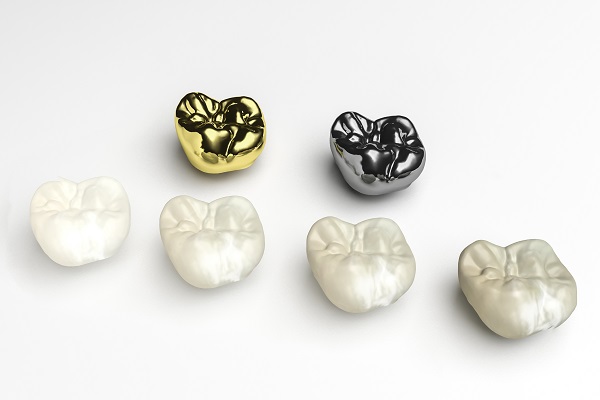Dental Crowns to Protect Your Tooth

If you've been told you need dental crowns or want to know more about them, here's an explanation of what they are and how they're used to protect your tooth from damage caused by decay, injury, or other factors. The following article provides some information about the materials used to make crowns and their benefits over different types of dental restorations.
What are dental crowns?
A crown is a covering that surrounds and protects a damaged tooth. Crowns can be made of porcelain, gold, or other material (depending on your needs) and are bonded onto your tooth. In addition to being highly effective at protecting your teeth from further damage, it also strengthens weakened teeth.
How do they protect your tooth?
Crowns protect teeth by covering and strengthening weak, damaged, or injured teeth. A crown is a custom-made cap that fits over your tooth, helping prevent further deterioration. It's like a protective hat for your tooth!
What material is used to make them?
Crowns are made from porcelain and metal alloys such as zirconia, gold, and silver. These metals are usually covered in resin and shaped into place by taking an impression of your natural teeth and sending it off for processing with dentists' equipment that uses pressurized air technology.
Porcelain and metal alloys used in dental crowns are usually covered in resin colored with pigments. The color can range from natural tooth colors like white and pink to blue or black.
What are the benefits?
Crowns allow you to keep your natural teeth for as long as possible. Crowns can cover any part of a tooth, from just the root and top to an entire chewing surface. In addition, some crowns are strong enough to be used in place of several natural teeth. The biggest benefit of a crown is that they are strong enough to last many years and protect your natural teeth from additional decay or trauma. Plus, they look just like your natural teeth!
Will I need more than one visit to get my crown?
Depending on your situation and the materials used, more than one visit may be necessary. The first one is an impression appointment where your dentist will take a mold of your mouth and teeth so that they can create your new crown later. If you go with a traditional dental lab route, it could take multiple weeks for your permanent crown to be finished before you come back for a second appointment. Your dentist will file down any rough edges and fit them into place permanently.
Contact your dentist
Consult your dentist before your procedure to know what materials are used and the expected timeline. Both factors will affect the price you'll be paying. Be prepared to ask questions to ensure that you have a clear understanding of the treatment plan moving forward.
Request an appointment here: http://www.riversdentistry.com or call Rivers Family Dentistry at (979) 710-2216 for an appointment in our Bryan office.
Check out what others are saying about our dental services on Yelp: Dental Crowns and Dental Bridges in Bryan, TX.
Related Posts
Are you considering getting dental crowns? Before moving forward, you need to ask your dentist some questions. This will help you understand the procedure and what to expect when it is over. Then you will have the information you need to make an informed decision about dental crowns.Getting crowns is a huge decision. Patients should…
While the cost of dental crowns is usually covered by insurance, getting a crown can still be an expensive and time-consuming process. Once the crown is in place, it can be tempting to forget about it and continue your normal habits, but not being mindful of your tooth restoration could lead to you having to…
A dental crown is a cap that fits over a person’s tooth. A crown is commonly used to restore decayed, missing, or cracked tooth structure. Whether a dental crown is ideal for you will depend on the condition of your teeth and the issue you are trying to fix. Read on to find out more…
Wondering how often a general dentist places a dental crown? The fact that dental crowns are one of the more common types of dental restorations that patients undergo to improve their oral health makes dental crown placement a very popular option for repairing teeth. Ready to learn more?It is essential for anyone who is in…


